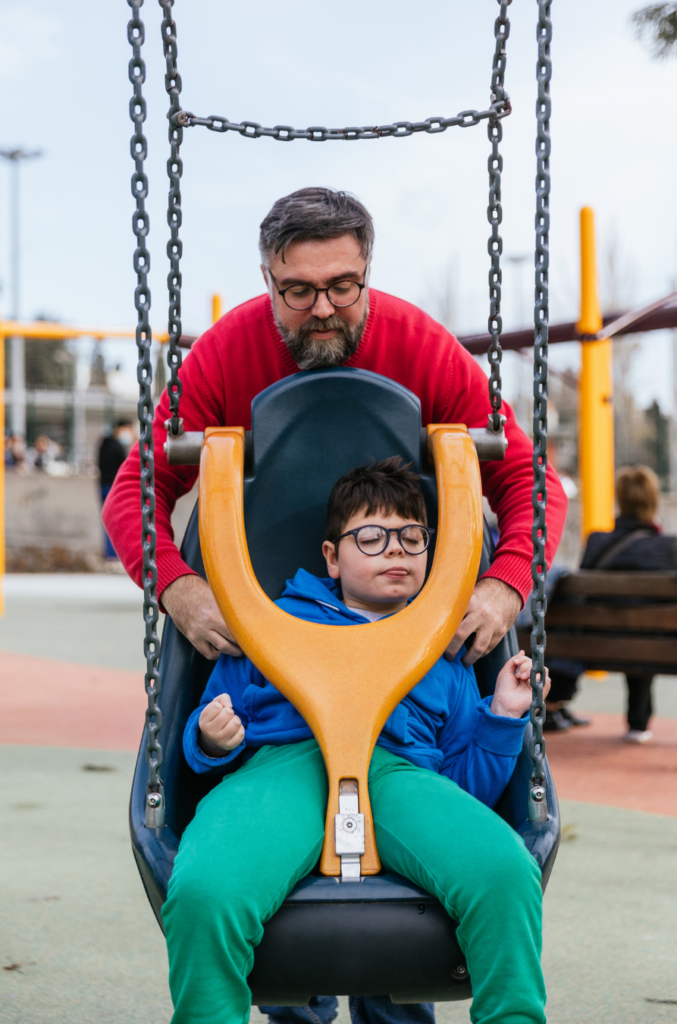As September approaches, many families are beginning to navigate the familiar, and often emotional, return to school. The shift from relaxed summer days to structured routines can be challenging, especially when a child needs more support to feel settled and secure.
In this edition of Ask SEND EDventures, we respond to questions from parents and carers about the lead-up to a new term, including anxiety about going back, difficulties with school uniform, worries about fitting in, managing hearing equipment, and returning to class after long-term illness. Our answers offer practical advice, reassurance, and links to trusted UK resources to help you feel more prepared.
Q: My 6-year-old has autism and is already worrying about going back to school. She asks every day how many weeks are left. How can I help prepare her without making it worse?
A: This kind of anxiety is very common, especially for children who thrive on routine and predictability. Even positive school experiences can feel distant after six weeks away, and many children begin to feel unsettled as the return approaches. Start with a simple visual countdown or calendar so they can track the days themselves, paired with calm, consistent reminders about what school involves. Try watching class videos, browsing the school website together, or reading stories about returning to school. If your child was given a transition booklet or photos of their new classroom or teacher before the holidays, bring these back into your daily routine as low-pressure prompts for discussion. Further guidance is available from the Autism Education Trust and Ambitious about Autism, both of which offer SEND-specific resources on managing change.
Q: Mornings are always tricky for my teenager with ADHD. We’re trying earlier bedtimes in preparation for school, but it just seems to cause meltdown after meltdown.
 A: The return to structure after the summer break can be particularly hard for teenagers with ADHD, especially around organisation, sleep and transitions. Earlier nights alone rarely solve the issue. Reintroduce small elements of routine: regular meals, structured mornings and visual checklists. Pack bags the night before and break the morning into steps—use visuals or written plans if verbal reminders are ignored. Give your teenager a say in how to manage mornings; ownership reduces resistance. You can also ask school for some flexibility during the first days if anxiety or overstimulation is high. The ADHD Foundation and Young Minds have tailored advice on back-to-school routines.
A: The return to structure after the summer break can be particularly hard for teenagers with ADHD, especially around organisation, sleep and transitions. Earlier nights alone rarely solve the issue. Reintroduce small elements of routine: regular meals, structured mornings and visual checklists. Pack bags the night before and break the morning into steps—use visuals or written plans if verbal reminders are ignored. Give your teenager a say in how to manage mornings; ownership reduces resistance. You can also ask school for some flexibility during the first days if anxiety or overstimulation is high. The ADHD Foundation and Young Minds have tailored advice on back-to-school routines.
Q: Uniform is a nightmare. My child says the fabric feels horrible and tight. He’s refusing to wear it and getting distressed every morning.
 A: This is common for children with sensory processing differences. Stiff collars, seams, scratchy labels and tight waistbands can be genuinely distressing. Speak with school about flexibility—under the Equality Act, children with sensory needs are entitled to reasonable adjustments. Many schools allow plain alternatives in the correct colours when they understand the reasons; a note from an OT or medical professional can help. Wash items a few times before term, remove tags and layer with soft base garments like vests or leggings. Introduce pieces gradually. Shops like Sensory Smart UK and Fledglings offer sensory-friendly items; supermarkets often have plain, softer pieces you can adapt. For more ideas, see our article Uniform Picks – Inclusive clothes that feel good.
A: This is common for children with sensory processing differences. Stiff collars, seams, scratchy labels and tight waistbands can be genuinely distressing. Speak with school about flexibility—under the Equality Act, children with sensory needs are entitled to reasonable adjustments. Many schools allow plain alternatives in the correct colours when they understand the reasons; a note from an OT or medical professional can help. Wash items a few times before term, remove tags and layer with soft base garments like vests or leggings. Introduce pieces gradually. Shops like Sensory Smart UK and Fledglings offer sensory-friendly items; supermarkets often have plain, softer pieces you can adapt. For more ideas, see our article Uniform Picks – Inclusive clothes that feel good.
Q: Our son wears hearing aids and relies on lip reading when one stops working, but he won’t always tell staff. We worked hard last year to keep his device connected so he could hear clearly. I’m worried we’ll have to start over with new staff.
 A: New staff, larger rooms and background noise can all affect access to sound. If your son relies on lip reading when a device fails, school needs to stay alert without depending on him to flag it. Contact school in week one to confirm how staff will be briefed. Share what worked last year—seating, daily equipment checks, facing him when speaking, who to contact for technical issues (radio aids/mics). Early consistency makes a big difference. Your local sensory support service can help with staff training. The National Deaf Children’s Society has excellent guidance on hearing tech and educational inclusion.
A: New staff, larger rooms and background noise can all affect access to sound. If your son relies on lip reading when a device fails, school needs to stay alert without depending on him to flag it. Contact school in week one to confirm how staff will be briefed. Share what worked last year—seating, daily equipment checks, facing him when speaking, who to contact for technical issues (radio aids/mics). Early consistency makes a big difference. Your local sensory support service can help with staff training. The National Deaf Children’s Society has excellent guidance on hearing tech and educational inclusion.
Q: My daughter has a long-term illness and missed the whole summer term. She’s returning to a class with new children and a teacher she doesn’t know. She says she feels forgotten and anxious.
 A: Extended absence can leave a child feeling isolated, especially when peer groups and relationships have shifted. Ask if she can visit on the first INSET day for a calm tour, brief chat with the teacher and a look at her seating. If not possible, request a short welcome video or photo. Share a one-page profile summarising needs, interests and what helps—useful when medical issues aren’t visible. For more support, see WellChild and the Council for Disabled Children on reintegration after illness.
A: Extended absence can leave a child feeling isolated, especially when peer groups and relationships have shifted. Ask if she can visit on the first INSET day for a calm tour, brief chat with the teacher and a look at her seating. If not possible, request a short welcome video or photo. Share a one-page profile summarising needs, interests and what helps—useful when medical issues aren’t visible. For more support, see WellChild and the Council for Disabled Children on reintegration after illness.
Q: We’re on a tight budget and our teenage son is panicking about not having the “right” shoes or coat. He finds friendships hard and worries about standing out.
A: The pressure to “fit in” can be intense, particularly for teens already navigating SEND-related challenges. Speak to school about pupil premium or hardship support; many have pre-loved uniform rails or donation schemes, and some local authorities offer uniform grants. Check pre-owned sites like Vinted, Thrift+ and Facebook Marketplace for near-new items. Involve your child in choosing budget-friendly options that still look “right” (plain black trainers, neutral coats). Confidence matters more than labels. Turn2Us and the Child Poverty Action Group offer advice on available support and how to talk with school if affordability affects attendance or wellbeing.
Have a question for next month’s column?
Get in touch at sendedventures.com/contact. All questions are anonymous unless you tell us otherwise. You don’t need to have it all sorted—you just need to know that help is available and we’re with you every step of the way.
Disclaimer: The information in this article is provided for general interest and should not be considered medical, therapeutic or educational advice. Families are encouraged to seek support from qualified professionals regarding individual needs or concerns.






